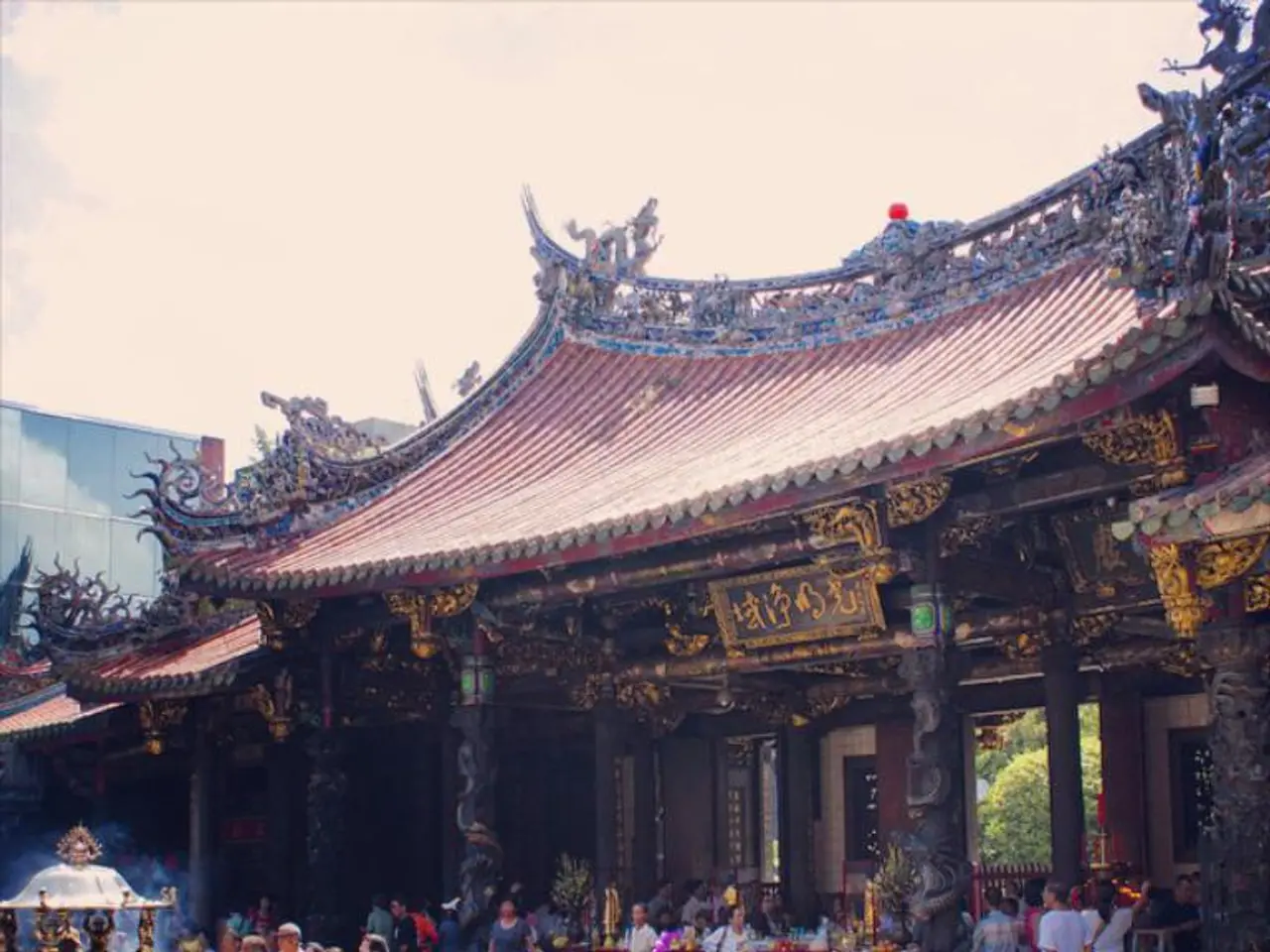Custom-Made Folding Screens: Traditional Japanese Artisanship Commissioned
In the heart of Tokyo's Mukōjima neighbourhood, Kataoka Byōbu, a specialty shop, stands as a beacon of Japanese craftsmanship and contemporary innovation. Established in 1946, the third-generation family-run business has been preserving the ancient art of byōbu (traditional Japanese folding screens) while catering to modern tastes.
Nestled in a quiet residential area, Kataoka Byōbu's showroom is located on the first floor, with the workshop on the second. The shop is easily accessible, just a stone's throw from Tokyo Skytree station, Honjoazumabashi station, and Oshiage station.
The main business of Kataoka Byōbu revolves around creating screens for traditional doll manufacturers and seasonal decorations, as well as serving a significant number of foreign clients interested in Japanese culture. Approximately 30% of the shop's sales come from these international patrons.
Kataoka Byōbu's unique selling point lies in its blend of tradition and modernity. The artisans use traditional techniques to prepare frames, washi paper canvases, and other components, but they also incorporate contemporary elements such as made-to-order customization, the use of photos and images, and close collaboration with customers.
Customers can commission folding screens with their own designs for special occasions like wedding anniversaries, or even for corporate and local government orders. The screens can feature personalized and contemporary motifs beyond classic themes like pine trees and Mount Fuji, resonating with both traditional and modern aesthetics.
The process of creating an original folding screen from scratch is a thrill for Kataoka Byōbu's head, Kataoka Kōto. Kōto spent time studying in the United States during high school, which deepened his appreciation for Japanese culture and led him to join the family business.
The shop's website, available in Japanese, can be found at http://www.byoubu.co.jp. For customers who prefer online interaction, Kataoka Byōbu staff are available via texting apps to discuss size, colour schemes, and shipping details.
Kataoka Byōbu also boasts a small museum, showcasing tools and demonstrating the intricate process of creating folding screens. It is the sole shop of its kind in Tokyo that creates traditional Japanese folding screens, making it a must-visit destination for those seeking a glimpse into Japan's rich cultural heritage.
From practical room dividers in the Nara period to contemporary works of art, byōbu have evolved significantly over the centuries. Today, Kataoka Byōbu continues this tradition, preserving the past while embracing the future.
- Kataoka Byōbu's unique blend of tradition and modernity includes incorporating contemporary elements such as personalized photos and custom designs, attracting clients from diverse backgrounds, including the home-and-garden lifestyle and art enthusiasts.
- The showroom at Kataoka Byōbu, nestled in Mukōjima, offers a peek into the intersection of Japanese culture, interior design, and contemporary arts, as they display traditional screens created for foreign clients and domestic businesses.
- Beyond the classic themes of pine trees and Mount Fuji, Kataoka Byōbu's screens can feature modern motifs, reflecting the evolving tastes in lifestyle and contemporary arts, making them suitable for various settings, including homes and gardens.
- In addition to traditional screen creation, Kataoka Byōbu shares its rich heritage through a small museum, demonstrating the intricate process of screen-making, and offers commission services for those interested in sharing contemporary Japanese culture through a unique piece of interior design in their home.






